Jason McCarthy is a former US Special Forces member and the founder of GORUCK, a company specializing in rucking equipment. In this episode, Jason recounts his journey from military service to navigating the challenging transition back into civilian life and ultimately embracing the mission of introducing rucking to the masses. Delving into the significance of rucking in military training and its applicability to the wider population, he discusses the mental and physical benefits of rucking as a mode of training, provides practical tips for beginners, and answers frequently asked questions about packs, weights, footwear, and more.
Subscribe on: APPLE PODCASTS | RSS | GOOGLE | OVERCAST | STITCHER
We discuss:
- Jason’s upbringing and what inspired him to join the military [3:15];
- Jason’s path to becoming a Green Beret, his calling to serve, and staying true to oneself [10:30];
- About the Green Berets: their role in the military, the unique abilities, missions, and more [20:00];
- The mental and physical challenges of special forces training and selection [25:00];
- Rucking challenges as a Green Beret [37:00];
- How Jason trained in his off time and stayed mentally prepared [46:30];
- Jason’s difficult decision to leave the army, and the challenges many veterans face returning to civilian life [51:30];
- Jason’s struggles after leaving the army: loss of identity, feelings of shame, and the how he overcame a period of despair [57:15];
- The origin of GORUCK [1:10:30];
- The GORUCK Challenge [1:24:30];
- The company’s evolution from event organizer to manufacturing specialist spurred by the growing interest in rucking as a form of training [1:35:30];
- FAQs about rucking: packs, weight, rucksack vs. weighted vest, chest straps, and more [1:38:45];
- Commemorating Normandy: GORUCK’s plans for the 80th anniversary of the Normandy landings [1:51:30];
- Footwear for rucking, and how GORUCK got into the footwear business [1:57:30];
- How to avoid the most common injuries from rucking, and the benefits of rucking for VO2 max, strength, and sleep quality [2:05:00];
- Advice for using rucking as a mode of training, and the advantages of rucking over other forms of training [2:12:45]; and
- More.
Jason’s upbringing and what inspired him to join the military [3:15]
- People who listen to this podcast have heard Peter talk about rucking a lot over the past year or two
- Peter points back a lot to Jason and Michael Easter
- We are going to talk a lot about rucking today, and Peter think’s it’s important for people to understand what it is and how-tos
- To put Jason’s mission in context, it makes sense to understand his journey
Where Jason grew up and his background in the military
- Jason was born in Ohio
- His mom was really young when she had him (age 18)
- They moved to Gainesville, Florida, and Jason was the unofficial mascot for the women’s tennis team (go Gators)
- He bounced around with his mom and was very close to her
- The military was not really a thing for him early on
- His grandfather fought in Korea as an artillery officer, but he never talked about it
- His uncle was a helicopter pilot, but Jason didn’t see him that much
Was your dad in the picture?
- He was and still very much is
- He’s still in Ohio along with both sets of grandparents
- His parents were in high school together
- Ohio was always a grounding thing for him, and his grandparents had an extraordinary amount of influence on his life
In college, what did you want to do?
- To give the timeline, Jason went to Bolles School in Jacksonville, FL
- It’s a very competitive athletic school
- High school was the hardest thing he’s ever done
- The English department kicked his butt
- He had 8 classes and would rather go back to the Special Forces Qualification Course than do a year of English at Bolles
- Jason played tennis and a little basketball
- Growing up, he was always into sports and being really active
- He didn’t know what he was going to do with his life
- He wasn’t good enough to play tennis at a big school
- He played D3 tennis at Emory in Atlanta
- That was a great way for him to focus
- At Emory, he studied economics and art history
- Both of his grandmothers were docents at the Dayton Art Institute in Ohio
- Being in art museums was an important part of how he grew up
- He did well in college and graduated in May of 2001
- He was very focused in college
- After college, he remembers applying to places that people told him he should: your bank, your consulting firm
- At age 22, he didn’t know what any of that was
- What do you do at Goldman Sachs or McKinsey if you’re 22?
- Importantly, you pay your dues
- Jaysons explains, “You have to figure out how to get into these larger organizations, and I didn’t know how to do that yet.”
- So he went and traveled around Central America and backpacked a little bit, then came back and got a job working at a call center of a marketing firm in Dayton Beach on 9/11
- Literally across the street from the racetrack
- That was the day that anybody that was alive remembers exactly where they were on 9/11
For Jason, it was just this enormous sense of sadness and anger that led to rage, and as a 22 years old, military aged male, with no dependants, no attachments, he felt compelled to serve our country
- Saying you want to serve, watching the night vision goggles (NVGs) and everything is in green on CNN is a lot different that actually signing up to go fight in a time of war
- Jason looked at all kinds of places: the CIA, the FBI, the whole alphabet soup universe
- Those places take a long time to get into, and rightfully so
- Even though he had just gone to college
- The application process is long
- Those places take a long time to get into, and rightfully so
- It was a time when everybody wanted to serve our country and you couldn’t just walk up, pick your branch, and become an officer
- There was a line a mile long of young people that wanted to serve our country because of what happened at 9/11
- Now it’s 2003 and he had started working at a bank in DC and is still applying to places
- It keeps not clicking
What happened in that year and a half between 9/11 and early 2003?
- He felt really down where he was in Daytona Beach and Jacksonville Beach, he felt really far away from what was going on
- He went and visited some friends in New York and being at Ground Zero just felt very communal in a positive way
- It felt like that’s where the decisions were being made
- It felt like that was just such an important place at that time, and he wanted to see it
- He went to New York in October of 2001, and you could smell it anywhere you were
- God bless the people that worked through that
- Day after day, they just pulled bodies out of the rubble
- Jason still gets goosebumps when he thinks about the amount of sacrifice and the service that went into that day and then to the handoff to the military
- The military is kind of a family business, and you’re best served, if you’re familiar with what that looks like
Jason’s path to becoming a Green Beret, his calling to serve, and staying true to oneself [10:30]
- Peter points out that in late ‘01 and most of ‘02 presumably anybody could walk into a recruiting office and join the Marines or join the Army or things like that (not necessarily special forces)
Was that something you were thinking of or were you still thinking you wanted to be in the CIA or something?
{end of show notes preview}
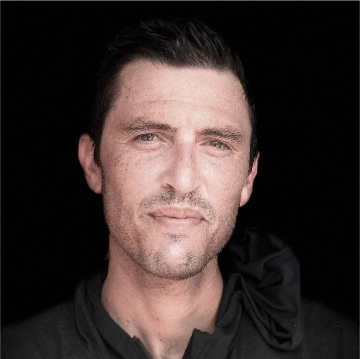
Jason McCarthy
Jason McCarthy earned a Bachelor’s degree in Economics from Emory University, where he was a 3x Academic All-American. After 9/11, he enlisted in the US Army and became a Green Beret in the Special Forces. He served in Iraq, West Africa, and Europe. He received a Bronze Star and Army Commendation Medal with “V” Device (indicating valor). Jason went on to earn a Masters of Business Administration from Georgetown University. In 2008, Jason co-founded GORUCK with his wife Emily. Their goal was to build a rucksack with life or death quality standards that would thrive in Baghdad and NYC. In addition to building the toughest rucking gear, they organize training, events, and GORUCK clubs. The Sandlot JAX Fitness Festival is one such event where the goal is to make fitness fun. Jason also serves on the Board of Directors of the Green Beret Foundation, a non-profit organization that supports present and past Green Berets and their families. [Forbes and GORUCK]
Instagram: jasonjmccarthy
X (formerly Twitter): @GORUCK
Website: GORUCK

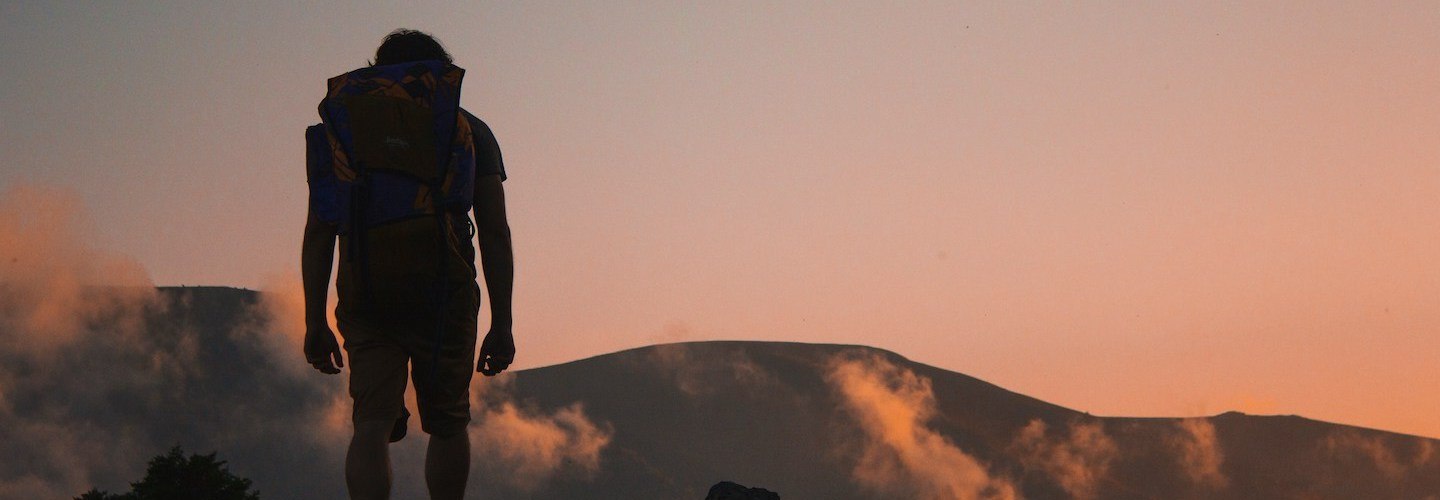
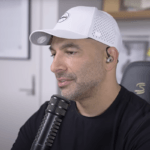

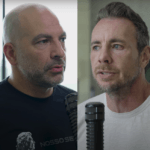
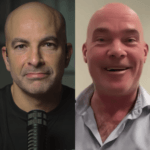
Enjoyed greatly the March 4 The Drive #292 ‒ Rucking: benefits, gear, FAQs, and the journey from Special Forces to founding GORUCK | Jason McCarthy. I’ll be 70 in another 6 weeks. I’ll be supporting GoRuck (and thank you for the discount) and buying my pack, weights, and shoes and I’ll start easy (I’m in pretty good shape). Looking forward to the rucking experiences, and continued content! Thank you all at the Peter Attia MD team.
Erne Alvarado
Union City, Calif.
Kudos to Peter A. for getting a member discount at GORUCK! 🙂
What is a good ruck sack to get from GORUCK for a beginner?
The best backpack for rucking is probably the Rucker 4.0. Depending on your height go with the 20L or 25L. Then add a plate depending on your baseline fitness level. You can start with a 10 lbs plate or you can go up to 30 lbs. Start with 1 mile of rucking. The subreddit goruck on reddit has a bunch of posts about your question.
Jason’s story is fascinating, inspiring and deserves to be heard. I’ve been considering giving rucking a go, but wasn’t sure how to start – now I do. Peter’s incisive interview style seemed to hit every question that popped into my mind as Jason shared his journey – reminds me of another favorite podcast, “How I Built This” and the equally fascinating episode with Randy Hetrick, founder of TRX. Thanks for a great episode!
Excellent! Thanks